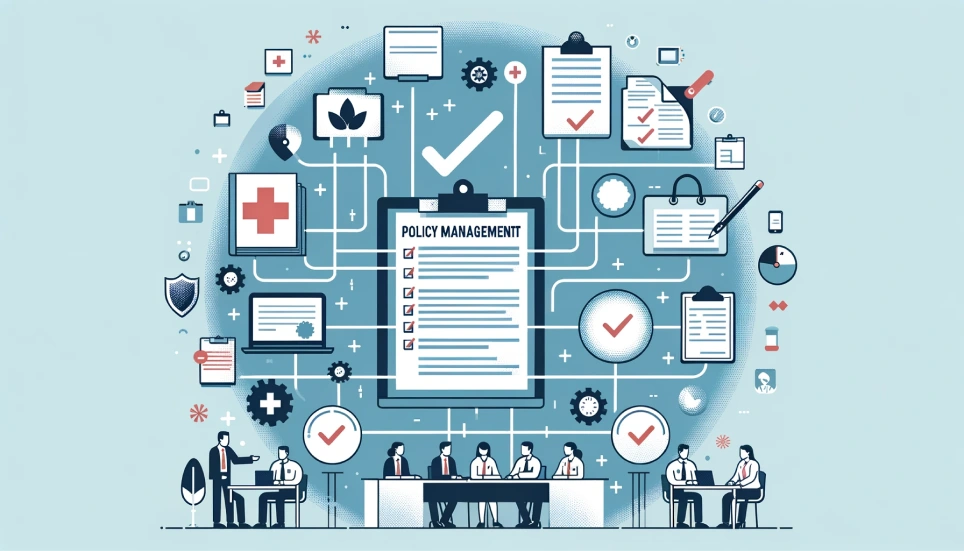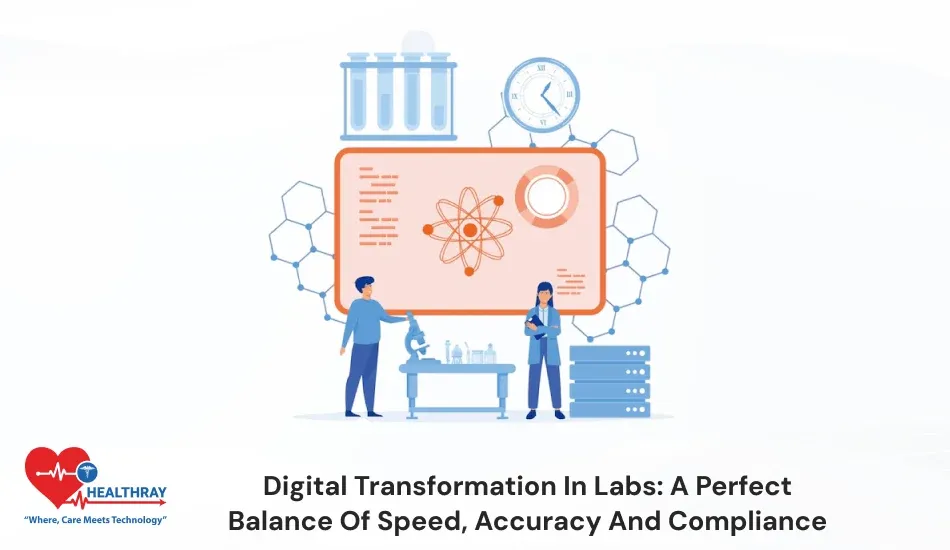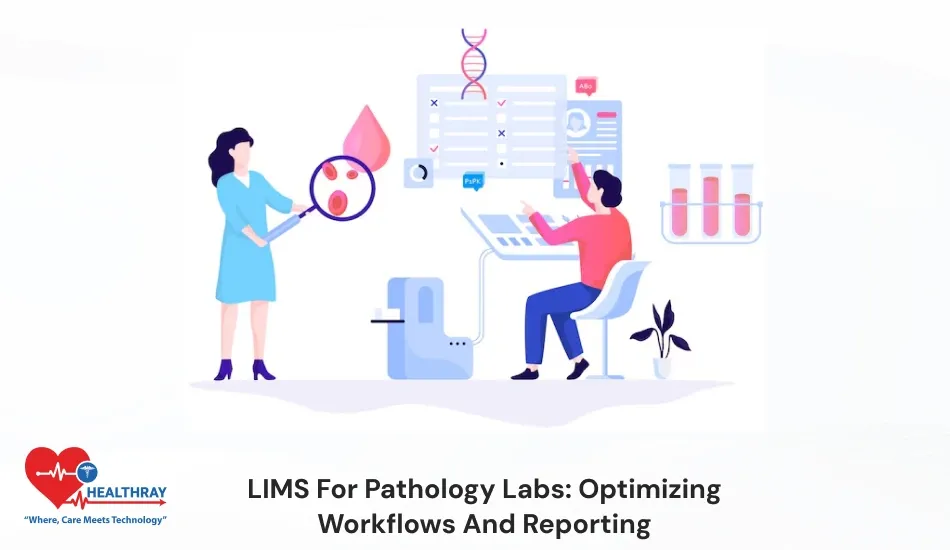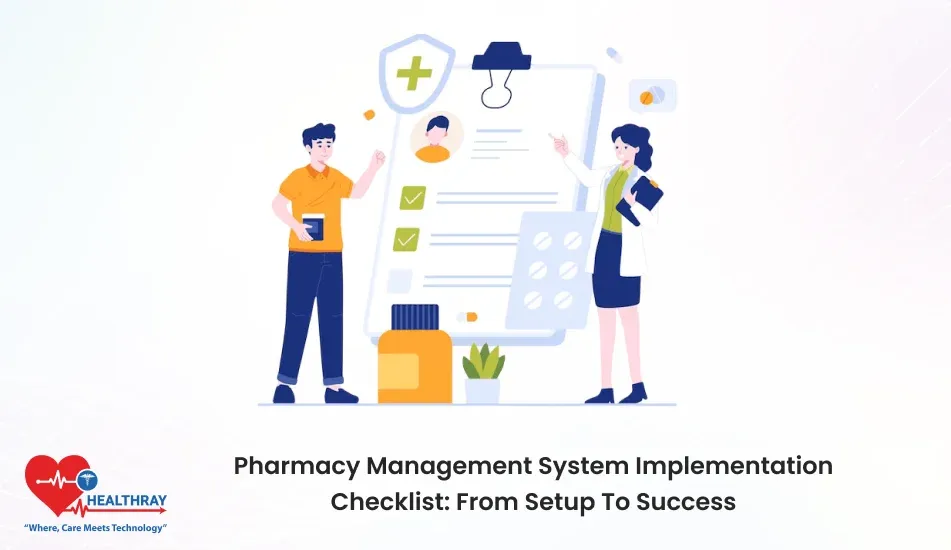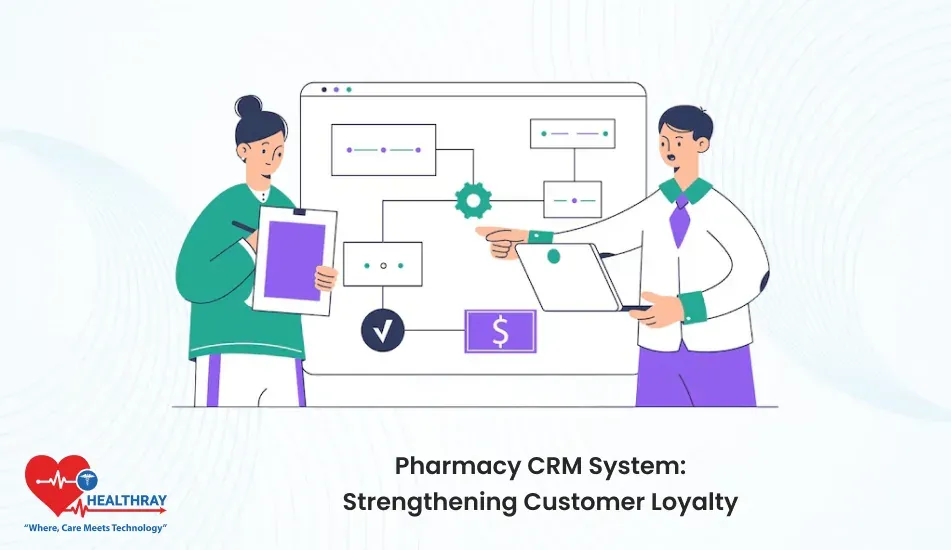Quick Summary: A simplified method for creating, updating, and monitoring compliance with healthcare policies exists. This method involves using hospital policy management software.These platforms come in a number of varieties, including web-based and cloud-based options. They provide a number of benefits, including increased patient safety, better policy adherence, and a noticeable decrease in administrative workloads. Typically, these software solutions include strict data security protocols, automatic notifications, and strong version control. These characteristics assist healthcare organizations in maintaining policies effectively and securely. They ensure that the policies are current and easily accessible.
Introduction
The healthcare sector acknowledges the critical importance of patient safety, health, and privacy. It considers a margin of error to be unacceptable. This is the exact moment when policies become prominent. Documents including policies and procedures are essential for defining appropriate conduct and industry best practices in healthcare facilities. Thus, hospitals cannot compromise on strict adherence to these procedural management standards.
These rules and procedures safeguard hospital authorities from expenses and liabilities in addition to acting as guidance. They play a crucial role in guaranteeing adherence to all essential regulations. This augmentation enhances the overall safety framework of healthcare functions. These regulations are essential for avoiding mistakes or misunderstandings in medical judgments. They ultimately prove vital in saving lives.
The efficiency of rules and processes depends on how well people working in the healthcare industry comprehend regulatory compliance. Hospital management software emerges as a key participant in this setting. It demonstrates how technology plays a leading role in supporting this comprehension. The healthcare policy and procedure software significantly alters the efficaciousness of hospital risk management software.
Survey the healthcare organization, find that most of them are not able to follow regulatory standards. Sometimes, they want to pursue but can’t due to shortage of time, less number of staff, and not properly implemented reminders. Therefore, the policy management solutions simplified clinical process, integrated regulatory guidelines, and mitigates. As a result, it improves overall organization policy organization policy.
The hospital management software provides a wide range of features during the acknowledgement process. These features extend beyond simplifying the formulation and administration of rules. Hence it is vital to understand several hospital management software development. Now let’s explore the potential that healthcare policy management software offers to improve the stability of healthcare operations and guarantee the best possible patient care and safety.
What Is Policy Management Software In Healthcare?
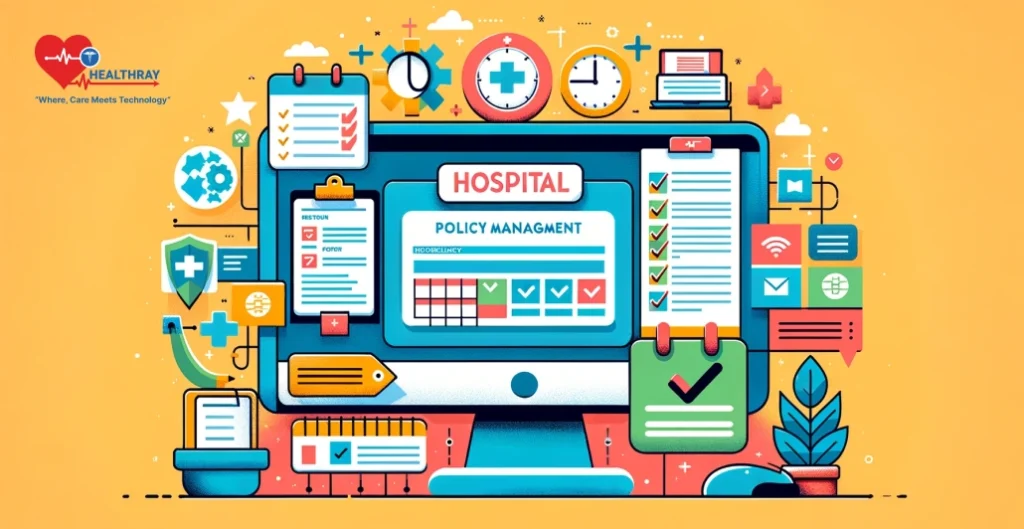
Software for managing healthcare policies is a flexible solution that helps users organize, track, and manage rules, including processes. This programme facilitates the creation, updating, and maintenance of policy and procedure papers. The healthcare policy and procedure software enables seamless collaboration with legal and other departments. Moreover, it is essential to make sure that staff members have not only accessed these materials but have also read and understood them completely.
It is essential to comprehend the particular services that hospitals provide before choosing the programme. Hospital policy management software goes above and above by offering a variety of security features, such as strong administrator capabilities and access restrictions. By guaranteeing that only authorized users may examine, amend, or approve policies, these features guard against unauthorized access to existing policies, preserving the integrity and confidentiality of sensitive information.
Since there are no limitations to policy management systems to the healthcare industry, their kinds might differ according to corporate requirements and regulatory footprints. The hospital policy management software helps companies in highly regulated sectors, including healthcare, manage processes and arrange policies to adhere to industry norms.
Large companies with extensive activities tend to have more complicated and intricate rules and processes. In this case, centralizing document delivery and storage is essential for streamlining workflows and averting non-compliance. Healthcare policy management software is a priceless tool for preserving compliance and operational effectiveness because of its flexibility in meeting the particular requirements of various company sizes and sectors.
Maintaining policies is time-efficient, harder, and a complicated procedure. However, the hospital policy management software creates with more simplicity and executes clinical operations in a minute. Furthermore, the healthcare policy and procedure software assists in compliance with HIPAA standards, HITECH Act (USA), and GDPR (EU) without any hitch.
What Are The Types Of Policies In Hospitals?
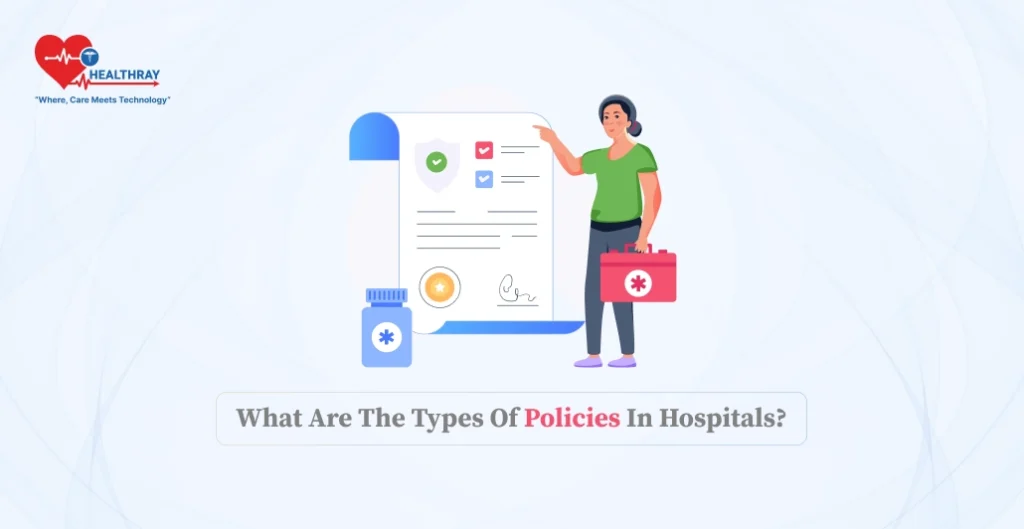
Guidelines for Patient Care
Policies pertaining to patient care guarantee that patients receive treatments in a safe and effective manner. These might include guidelines for family presence, resuscitation techniques, patient rights and responsibilities education, and abuse and neglect protocols.
Health Privacy Policies
The Health Insurance Portability and Accountability Act of 1996 (HIPAA) requires health privacy policies. Adherence to these guidelines protects private information about patients and their families from prying eyes.The hospital policy management software protects hospitals from future legal action, penalties, and fines. For this it is ideal to use effective hospital risk management software.
Guidelines for Managing Medicines
Policies for managing pharmaceuticals are present, sure that medical personnel give patients the right amount of their prescriptions in an effort to avoid serious interactions. These regulations could cover things like prescription handling training, storage standards, and dispensing procedures for opioids.
Policies for Health and Safety
Health and safety rules are essential because medical practitioners frequently handle dangerous chemicals and possibly infectious illnesses. To manage these risks effectively, many healthcare organizations use Occupational Health and Safety software, which supports safety precautions and health education in reducing dangers associated with unstable and difficult circumstances.
The policy management solution maintains a compile of documents, easy to check their accuracy, and follow regulatory needs. Moreover, the healthcare policy and procedure software simplifies policy creation processes, lower staff tasks, improves operational efficiency, and maintains compliance in each step of workflow. The right policy management software precisely automated workflows, improves organizational efficiency, and manages critical documents.
Essential Features of Healthcare Policy And Procedure Software
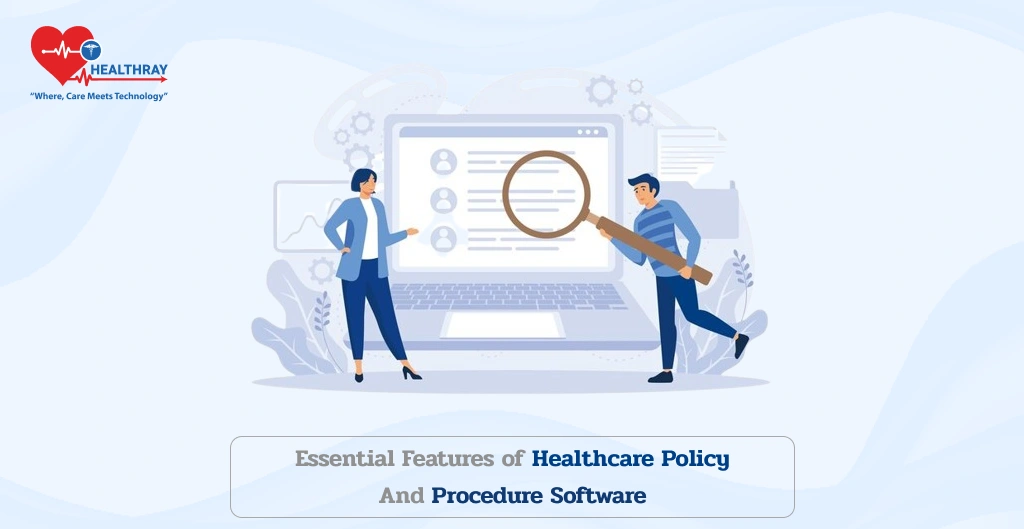
When it comes to hospital policy management software, having basic functions is crucial to its performance. A list of essential components that ought to be included in such a system is as follows:
- Templates for policies:
Policy templates have to be included in cloud-based software for managing healthcare policies. By enabling policies to be developed in a standardized style and guaranteeing consistency over time, these templates save authors time. The policy management processes help beginners, supports artists, and makes it easier for users to grasp.
- Robotized Processes:
Because hospital activities are fast-paced, workflow automation is essential. Efficient policy generation, authorization, and dissemination should be made possible by the programme. The solution should allow several stakeholders to work together on the same document, notify users automatically when modifications are approved or rejected, and streamline policy administration as a whole.
- Policy Archive:
Policies must be well-organized and accessible. Policies are kept in a readily accessible way via a cloud-based repository, making them available and easy to use for the appropriate staff. Healthcare professionals or clinical staff can work from their home and apply associated policies because it is stored in a single platform. Furthermore, the saved documentations are helpful in revising policies and training to newcomers in the healthcare organization.
- Recognition Monitoring:
Obtaining acknowledgement from staff members and other relevant stakeholders is essential to ensuring policy review. By offering an audit trail, reminding those who haven’t acknowledged, and facilitating appropriate acknowledgment tracking, the programme should lower the risk to organizations in the event that policy is broken. Once all types of policies are stored and implemented on a regular basis, it simplifies to monitor. Ultimately, the hospital policy management software declines costs and multiplies efficiency.
- Version Management:
Version control that works is essential. The programme needs to function as a unified, precise resource for staff members, unambiguously designating preliminary and definitive iterations of policies. By doing this, one can avoid duplication and guarantee simple access to the most recent version. Additionally, the healthcare policy and procedure software generates a thorough audit trail that documents every step of the process, from developing policies to making revisions and updates.
These characteristics improve hospital policy management software’s capability and make a big difference in terms of healthcare organizations’ policy management’s effectiveness, uniformity, and reduce compliance gaps.aps.
Benefits Of Hospital Policy Management Software
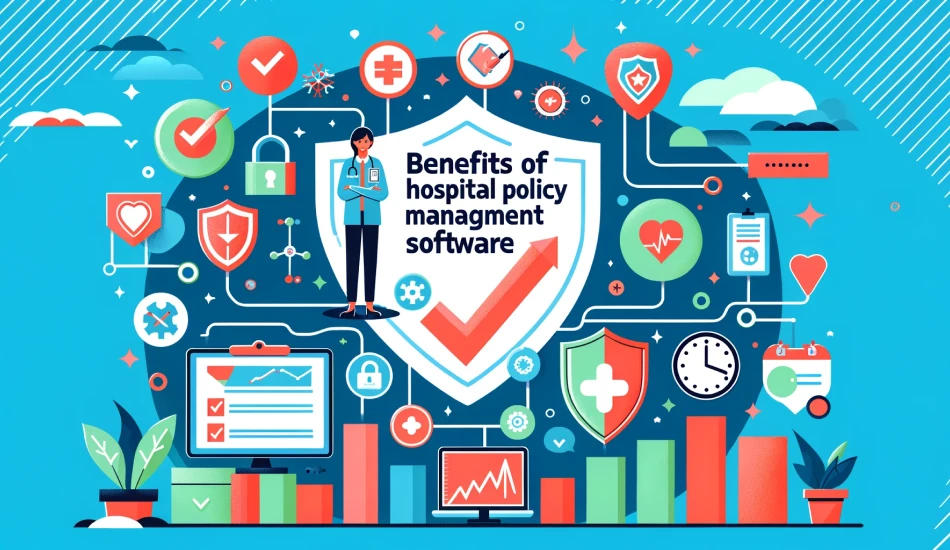
Putting in place efficient hospital risk management software is a calculated step that improves overall compliance while reducing risks across the board. The following are the main advantages of using such software:
Reducing Hazard and Enhancing Adherence:
Employees with the necessary knowledge can react quickly to threats and security challenges. Software for hospital risk management creates a single repository where multiple regulations that apply in different circumstances are present. By ensuring that workers can easily access policies when needed, this helps to mitigate possible risks in a proactive manner.
Improving Liability
The ability to manage several policy versions and include audit trails makes it possible to keep track of policy approvals, rejections, and revisions. For better liability, it’s crucial in Understanding what services do hospitals provide? Cloud-based healthcare policy management software promotes responsibility for non-compliance by ensuring that staff members recognise and understand policies.
Automating Workflow for Policy Management:
Hospital management systems notifies all stakeholders after automatic policy library creation policy. By automating the policy management process you can avoid time-consuming policy duplication. It also makes the process more ecologically friendly and efficient by doing away with the need to print hard copies of policies for approval.
With the hospital policy management software, create documents along with necessary standards in a less time period. Furthermore, it minimizes stress on employees or in the head of the stakeholders.
In conclusion, hospital risk management software offers a methodical approach to policy administration in addition to addressing current security problems. Through the automation of procedures, expedient access to regulations, and improved accountability, this software helps healthcare organizations cultivate a culture of compliance and risk management.
How Can Healthray Assist In Hospital Policy Management Software Development?
Healthray is a leading provider of customized software development services for hospital administration, specializing in streamlining healthcare regulations and processes. Our skilled development staff has extensive knowledge of the particular procedure management requirements of medical institutions. However our expertise lies in creating interfaces that are easy to use and promote effective policy creation, modification, and distribution.
The hospital policy management software from Healthray makes sure to abide by all industry rules. It promotes better staff collaboration and communication. Consequently, the hospital management software leads to financial savings and enhances patient care and safety. Our solutions simplify the complicated aspects of policy administration with their extensive capabilities, such as automatic notifications and strong version control.
Conclusion
A vital tool for contemporary healthcare facilities is hospital policy management software. Hospitals may select solutions that best suit their needs from a variety of options, such as compliance tracking software and document management systems. Wide-ranging advantages of using this kind of software include increased communication, simpler processes, more compliance, and ultimately, better patient care.
Access restrictions, automatic alerts, and document version control are just a few of the key components of policy and procedure administration that make these systems so important to healthcare operations. They greatly enhance overall operating efficiency in addition to guaranteeing regulatory compliance.
Investing in strong policy and procedure management software is essential for hospitals that want to provide excellent care while successfully managing a complicated regulatory environment in the constantly changing healthcare landscape. These systems are essential to accomplishing company objectives because they promote a culture of efficiency, compliance, and—above all—high-quality patient care.
